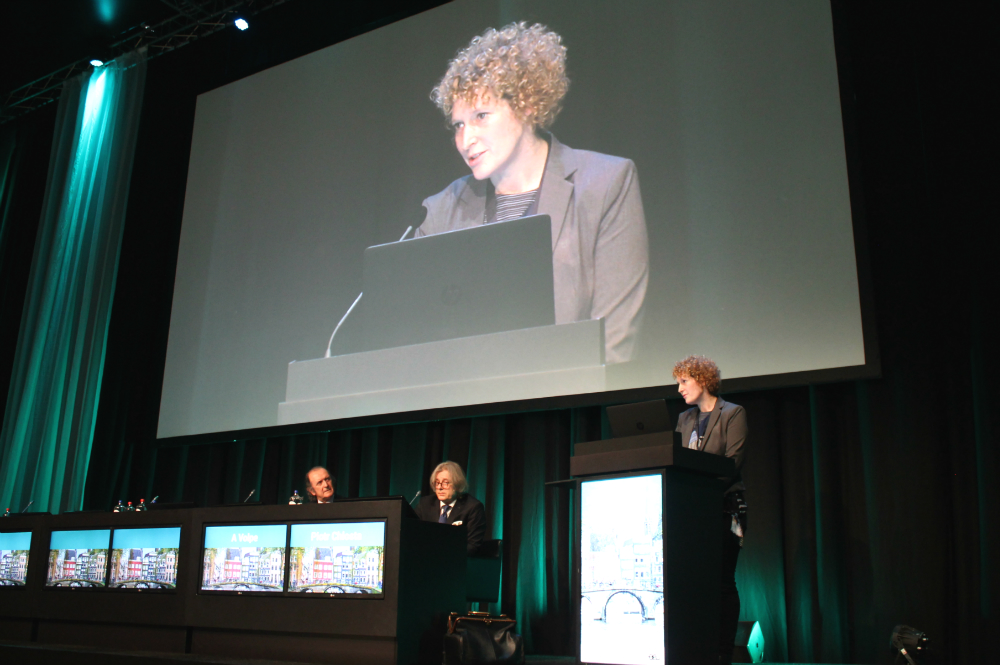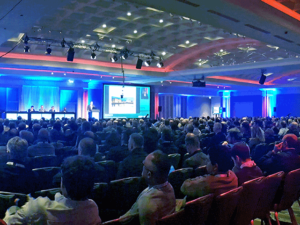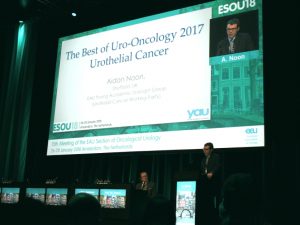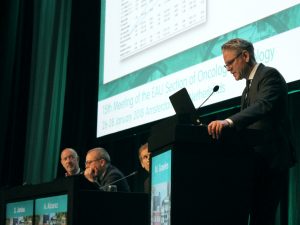The advantages of Optical Coherence Tomography (OCT) and the introduction of liquid biopsy were some of the research topics discussed today during the session “Renal cancer I: Localised: Alternative approaches for characterisation of renal tumours”.
In his lecture, “Conventional and optical renal mass biopsy”, Prof. T. De Reijke (NL) stated that the aim of his research was to determine the accuracy and diagnostic yield of OCT and renal mass biopsy (RMB) for the differentiation of renal masses. He said that OCT is a potential add-on to RMB to reduce non-diagnostic rate.
According to Prof. De Reijke, OCT is the optical equivalent of ultrasound and is based on the back scattering of near-infrared light. “With OCT, you can determine the attenuation coefficient, which is the decay of light per millimeter tissue penetration.” He said that compared to RMB, OCT has a higher diagnostic yield and distinguishes benign renal masses (RMs) or indolent renal cell carcinomas (RCCs), and oncocytoma from RCCs accurately. He pointed out that specificity and negative predictive values (NPV) are lower in OCT compared to RMB.
In her lecture“Liquid biopsy”, Prof. M. Freifrau von Brandenstein (DE) stated that “Liquid biopsies are necessary and usable in the detection of tumours and the control of the therapy’s success.” She said that personalised treatment of the patient can be based on the therapy results. The research for proteins involved in the process of cancer development is essential.
Previously known as circulating cell free DNA (cfDNA), liquid biopsy is a non-invasive method for biomarker discovery significant in the field of personalised medicine.
Prof. J. Walz (FR) concludes the session with his lecture “MRI” where he stated that magnetic resonance imaging (MRI) is the “most promising imaging tool for image-based characterisation of renal masses and added that multiparametric MRI adds information but there is still no reliable pattern per entity identified.” According to Prof. Walz, “Radiomics” have the greatest potential for the future.
The session was chaired by Prof. P. Chlosta (PL) and Prof. A. Volpe (IT).




